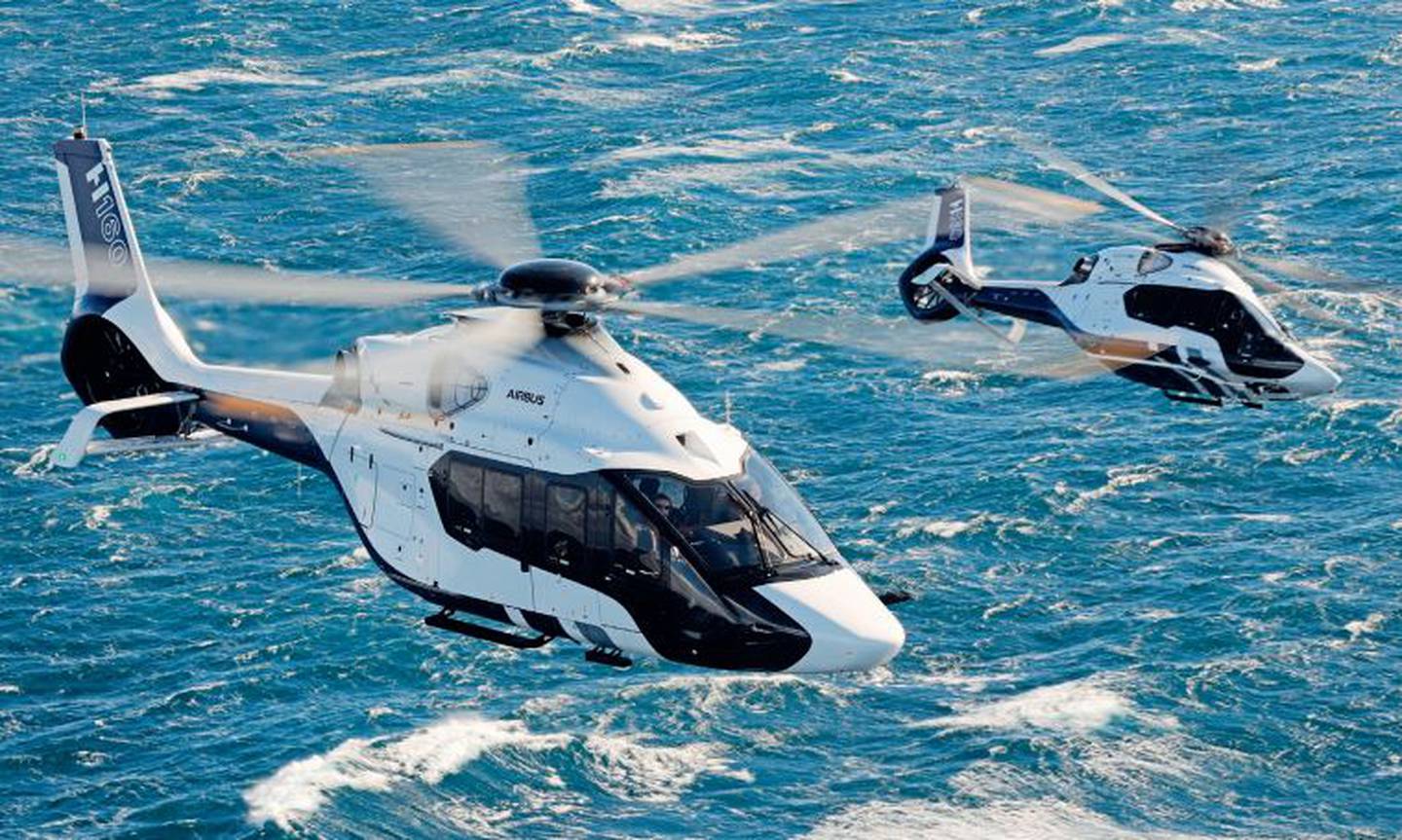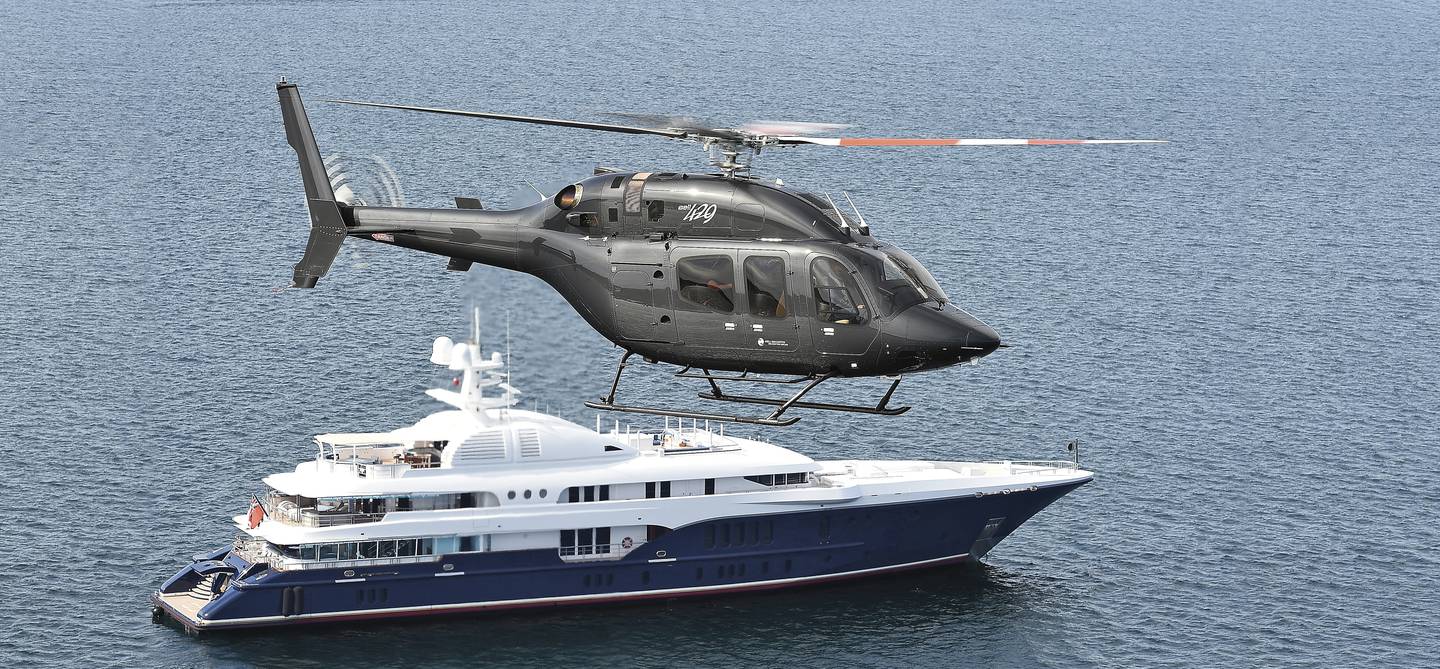By Sergio Ripado
Brazil has become one of the fastest growing commercial helicopter markets in the world, above the global average, reflecting the greater demand for air mobility in the main urban centers of the Southeast region, according to companies and authorities in the sector.
It is an executive aviation segment that has been heated since 2020, the first year of the Covid-19 pandemic, when many of the current owners acquired their first aircraft and, now, in a natural market movement, seek to exchange it for newer models, with more comfort and safety.
Imports should end the year with an expansion of 6%, above the 5.4% predicted in the annual average until 2030, according to projections by the consultancy Grand View Research. It is a market estimated at US$5.9 billion, in an account that does not consider military orders.

The arrival of an imported helicopter in the country, brought by the Beluga cargo plane, became one of the subjects of the Brazilian celebrity media in July, with the arrival of an ACH160 model, manufactured by Airbus Helicopters.
The aircraft, whose price is estimated at nearly US$20 million, is registered with the Air Force as belonging to Ocean Explorer do Brasil, a business management consultancy owned by billionaire Carlos Alberto Sicupira, one of the main shareholders of Ambev and AB InBev.
Airbus’ H160 family of luxury helicopters is a favorite of Brazilian billionaires.
According to the RAB (Brazilian Aeronautical Registry), an H160-B model is in the name of Romanof, a real estate rental company, which has banker André Esteves, chairman of BTG Pactual, one of the largest investment banks of Latin America, registered as partner.
The Brazilian fleet of helicopters with turbine engines reached the mark of 1,000 units in March 2020, the month in which the WHO (World Health Organization) decreed the covid-19 pandemic.
In September of this year (last available data), the country registered 1,093 helicopters in a regularized situation, which represents a growth of 6% in relation to the number of the fleet in December 2021 (1,032) and of 8% in relation to the end of 2020. The data are from Abag (Brazilian Association of General Aviation), based on RAB records.
RANKING UP
The entry of new registrations (a code that every aircraft has) in the business aviation fleet rose from 239 in 2020 to 326 in 2021. This year, until September, it already totaled 367.
Considering only turbine-powered helicopters, this indicator jumped from 33 in 2020 to 47 in 2021. And reached 68 in the first nine months of 2022.
The trend towards an increase in the helicopter fleet contributes to improving the infrastructure in the domestic air taxi market.
This year, Brazil gained positions in the ranking of best-prepared countries for this executive aviation segment, jumping from 25th to 8th place between 2021 and 2022, according to the survey “Air Taxi Readiness Index 2022″, prepared by the global company KPMG audit.
The advance was largely driven by rising business opportunities in the country, which takes into account the scale and depth of Brazil as a potential market for air taxis.
“Brazil is a large and tempting market, with high consumer acceptance, technology and innovation and business opportunity, with a developed helicopter market and the highest volume of air traffic in South America,” said Camila Andersen, strategic business partner at KPMG’s in Brazil, in a note on the survey.
“Its numerous congested and sprawling cities present ideal opportunities for the adoption of air taxis”, pointed out the KPMG specialist.

INCREASE PROJECTED FOR 2023
The expansion in demand for helicopters should continue in the domestic market, according to companies that work with the import of executive aircraft. Helicopters are seen by customers as an urban mobility solution for shorter journeys.
“Quickly accessing different points in larger cities like São Paulo and Rio de Janeiro, getting to airports far from corporate office regions, going to farms in areas close to urban centers or in residences on the coast and inland motivate the importation of rotary wing aircraft,” said Pedro Ferreira, head of aviation at Brazilian trading company Timbro.
The company delivered five times more helicopters this year than in 2021, with 60% more revenue from this segment, according to the executive. For next year, orders already placed point to a 40% increase in volume compared to 2022. The trading company projects revenues of US$2.2 billion in 2022 considering all business fronts.
“Revenue was impacted by the expansion of the mix, with customers demanding the importation of top-of-the-line models. As an example, the company brokered the arrival of a twin-turbine Bell 429, which is more comfortable and, because it has two turbines, is safer and has a longer range,” said the executive, without revealing the identity of the customer.
Between 2021 and 2022, Timbro tripled its dedicated aviation team, which currently has 11 professionals in the commercial and operational area specialized in rotorcraft, and expanded the portfolio of partner manufacturers, with a focus on meeting market demand.
“The behavior of owners who enter executive aviation is to invest in a functional aircraft, at a lower cost, to understand whether this mobility solution makes sense for their needs,” said Ferreira.
“Once the testing phase is over, this owner feels safe to make a bigger investment and acquire a top-of-the-line helicopter. It is at this stage that we are now in the segment.”
The exhibition of new models at fairs, such as Labace, held in August in São Paulo, helps to awaken the desire for these machines, which still in this decade should rival the eVTols (electric vehicle for vertical takeoff and landing), expected to arrive to the market in 2024.
In August, Leonardo, the Italian manufacturer of multi-engine helicopters for the VIP/corporate public, received an order for three units from two Brazilian customers: two light twin-engine AW169 helicopters and one light twin-engine AW109 Trekke, with delivery expected by the end of 2023.
With more than 900 VIP helicopters in service worldwide, nearly 25% of Leonardo’s aircraft are based in Latin America, according to the company.
MILITARY
In addition to businessmen, institutional clients, such as governments, are also strengthening the backlog of aircraft manufacturers’ orders.
The Brazilian Armed Forces acquired 27 single-engine H125 helicopters to increase the training capacity of the Navy and Air Force, according to Airbus. The order was placed through Copac (Combat Aircraft Program Coordinating Commission), the US giant said in a statement released in September.
In this case, there will be no import. The H125 will be produced on the assembly line located in Itajubá, Minas Gerais, at the Helibras factory, where the H225Ms for the Brazilian Armed Forces are also assembled. According to Airbus, these new helicopters will replace the aging AS350 and Bell 206 helicopters currently in service with the Air Force and Navy, respectively.
The Brazilian Armed Forces operate a total of 156 Airbus helicopters, installed in eight bases across the country. The fleet ranges from the light single-engine Esquilo family to the heavy multipurpose H225M helicopter (67 and 41 helicopters respectively).
With information from Bloomberg

